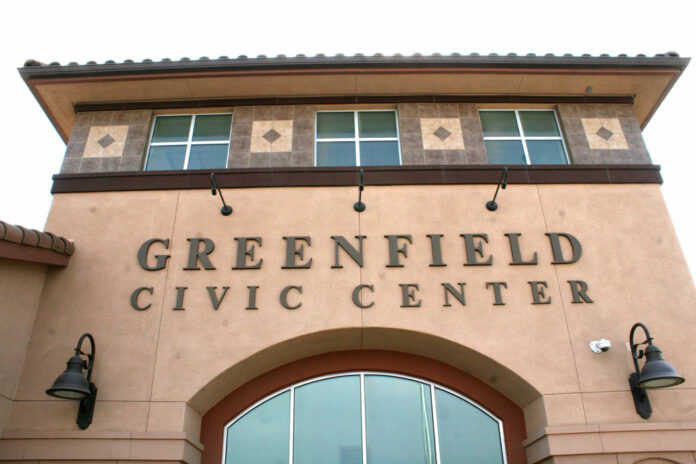GREENFIELD — Greenfield City Council members introduced and revised a ballot item to continue a sales tax meant to fund city services, which passed with a unanimous 5-0 vote during their July 14 meeting.
The ordinance would continue a three-quarters of 1% tax, originally Measure W that passed in 2015. This measure was in addition to Measure X, a 1% tax first introduced in 2012 that was extended indefinitely in 2015 as Measure V.
Together, Measures W and V generate more than $2 million per year to help fund services from recreation to police to city operations. The revision to the measure’s sunset means the tax will remain for six years.
“Measure W generates more than $1.1 million per year that helps fund 17 staff positions, 14.5 in police department and 2.5 in recreation, along with other critical expenses in those programs,” said Paul Wood, Greenfield’s city manager. “The city would like to continue to provide these services into the future.”
He added that since the measure would merely be extended, “This doesn’t increase anything more than what’s happening now.”
The ballot measure will need to be submitted to the county elections clerk by August, and if placed on the ballot, will require 50% plus one “yes” votes to pass. Wood said the city staff is “excited” about making the measure successful this November.
Wood first proposed a three-year sunset period on the measure.
“Within three years we can come up with more development in the cannabis area that would supplement this,” Wood said. “We would have some room for the future to dig into the well if we needed to.”
Council members called for a longer period, first discussing five years before settling on six.
Both Mayor Lance Walker and Council Member Andrew Tipton spoke of using extended time to pursue larger projects, such as an aquatics center.
Council Member Angela Untalon mentioned the Covid-19 pandemic as causing uncertainty with the tax situation over cannabis, and also expressed favor toward larger projects.
Wood said he advised a shorter period to avoid becoming complacent with the incoming funds, and also to sooner free up potential tax allowances by the state board of equalization in the event of a fiscal emergency, in which the city would need to increase taxes to fund other areas.














